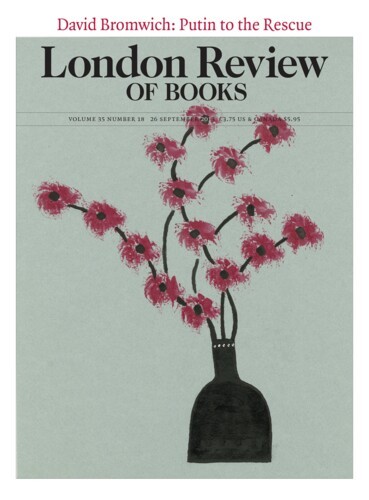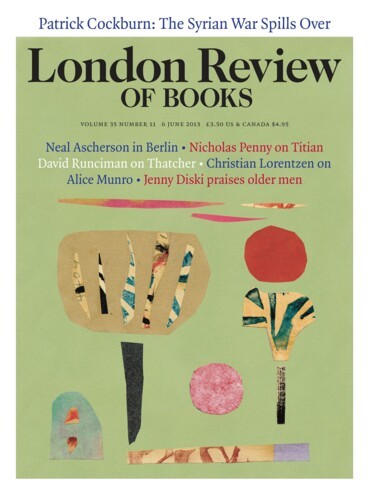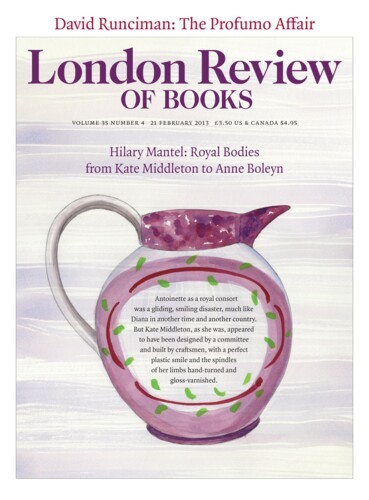Short Cuts: The Syria Debate
David Runciman, 26 September 2013
Syria has for now turned into the war that never happened thanks to the gaffe that never was. Once John Kerry let slip that there was something Assad could do to head off a military strike – agree to international oversight of his chemical arsenal – the stalled march to war became a headlong retreat. Obama appears to have found a way out of the hole he had dug for himself, with a...





